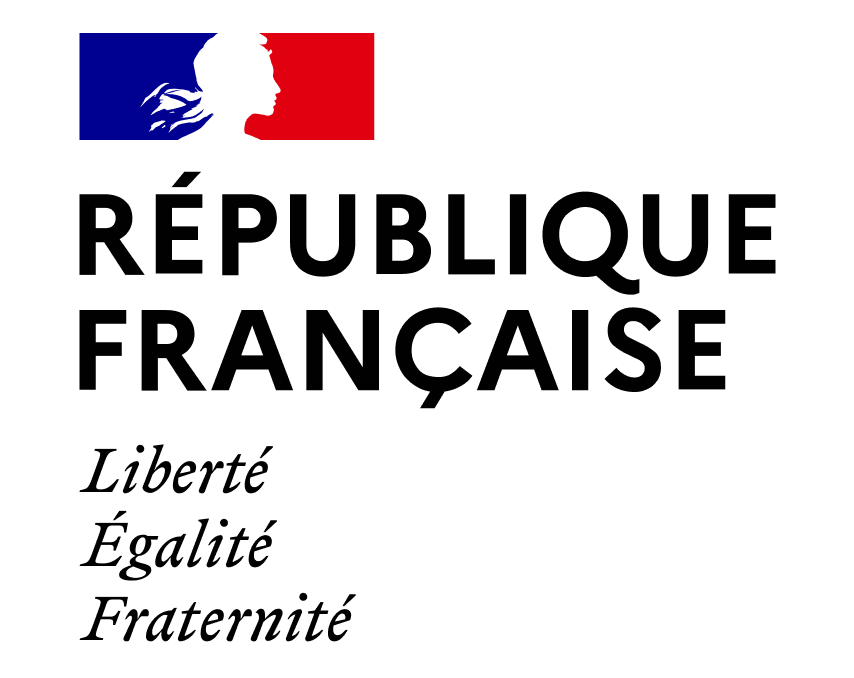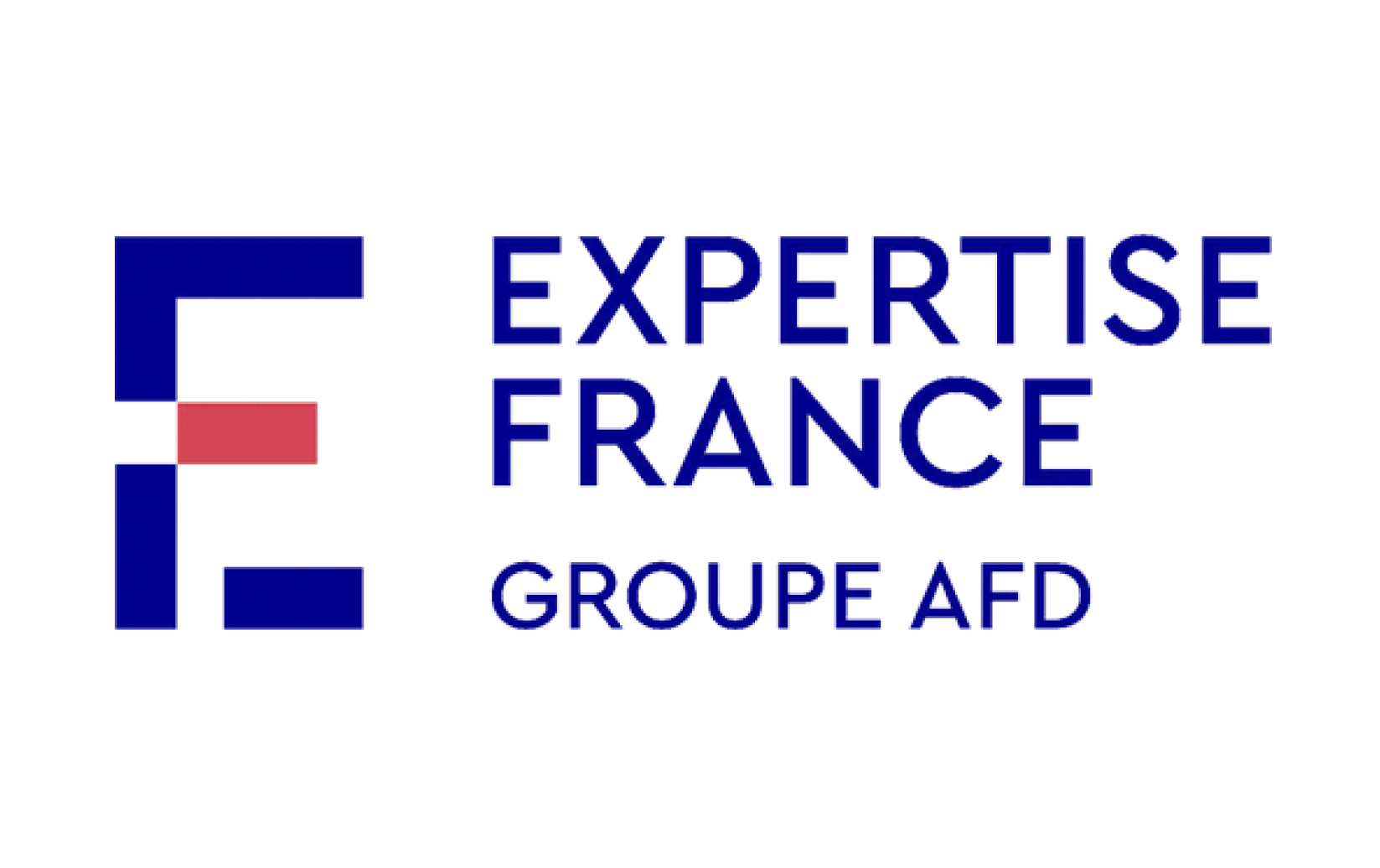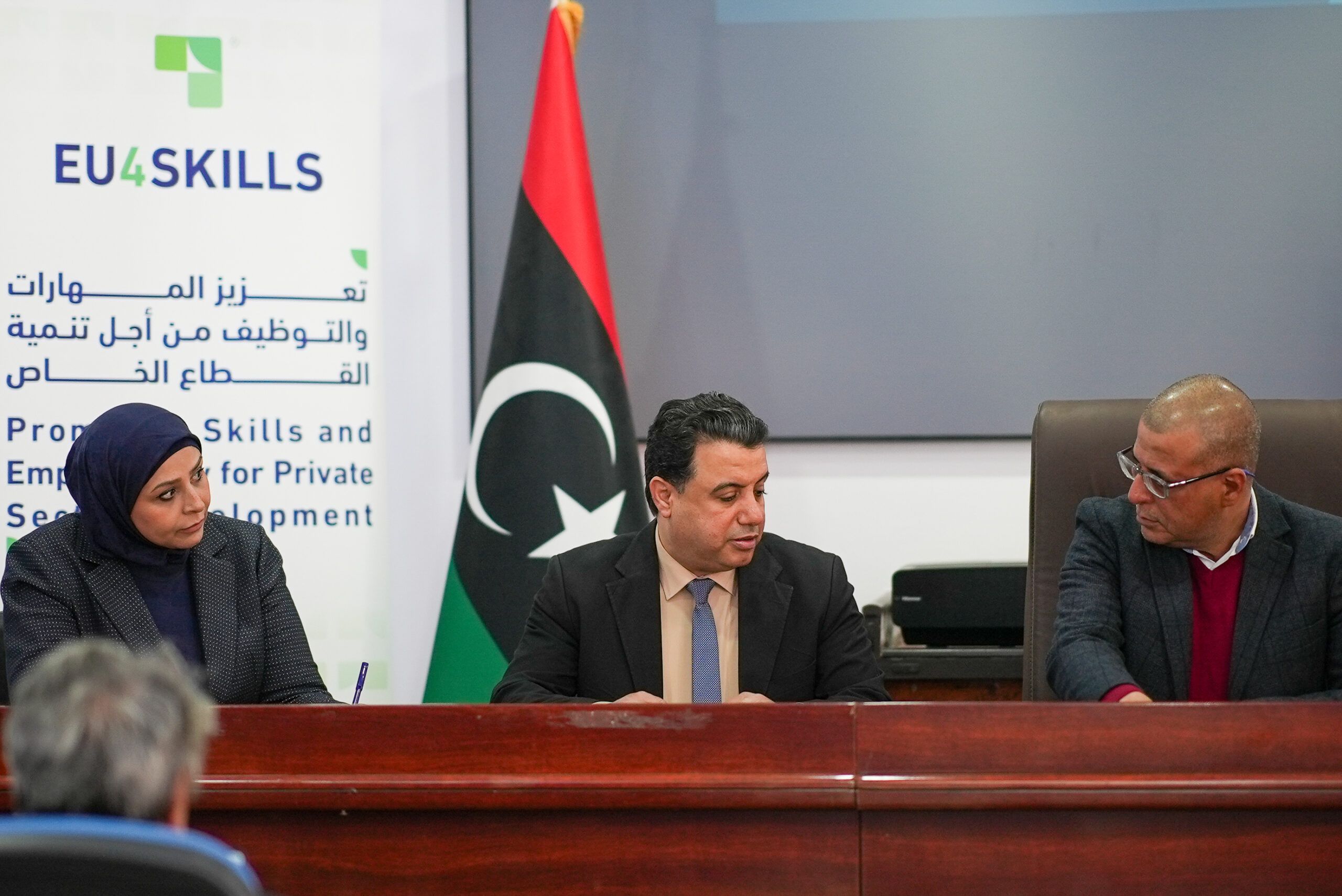University of Benghazi hosts a series of dialogue sessions as part of the evaluation phase of the EU4SKILLS project
On Sunday, February 9, 2025, the dialogue sessions for the evaluation phase of the EU4SKILLS project were held at the Research and Consultancy Center of the University of Benghazi. These sessions focused on enhancing skills and increasing employment opportunities to support the private sector in Libya, with the participation of representatives from the public and private sectors, as well as experts in economics, education, and employment.
These discussions follow similar sessions previously held at the University of Tripoli, making them the second in a series of dialogues covering various Libyan cities as part of the first evaluation phase of the EU4SKILLS project.
The session was opened with a welcome speech by the Director of the International Cooperation Center at the University of Benghazi and the Director of the Research and Studies Center at the University of Benghazi. The speech outlined the project’s objectives and its role in developing skills that align with the needs of the Libyan labor market.
The event featured three parallel dialogue sessions. The first session explored the role of the green and blue economy in development, the challenges it faces, and the skills required to support it. The second session focused on employability, where participants discussed current employment policies, the barriers facing youth and women, and mechanisms for linking education with the labor market. The third session highlighted digital skills, the state of the digital sector in Libya, and the role of training and public-private cooperation in advancing digital transformation.
After the session, recommendations were presented, which will be used to shape future activities under the EU4SKILLS project. Funded by the European Union and the French government and implemented by Expertise France, the project aims to support graduates’ skills, align them with labor market demands, promote the green and blue economy, and improve access to financing.


